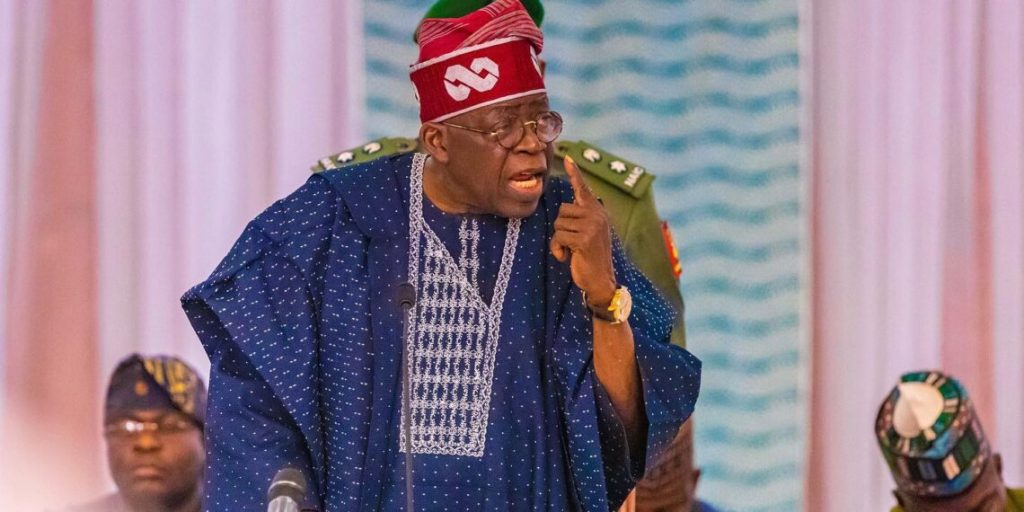On Monday, President Bola Tinubu issued a warning against arbitrary judicial rulings that would stifle Nigeria’s democracy.
In his first statement on Democracy Day as the 16th president of Nigeria, Mr. Tinubu declared: “It has become imperative to state here that the unnecessary, illegal orders used to truncate or abridge democracy will no longer be tolerated.”
The winner of the invalidated presidential election of June 12, 1993, Moshood Abiola, was referred to by the president as the “symbol of democracy.”
Ibrahim Babangida, a former military ruler of Nigeria, annulled Mr. Abiola’s victory after a court ruling declared the election invalid. Many Nigerians hailed the election as the “fairest and freest” in the nation’s democratic history.
“The abortion, by military fiat, of the decisive victory of Chief Moshood Kashimawo Olawale Abiola of the defunct Social Democratic Party (SDP) in the June 12, 1993, presidential election, up to that time, the fairest and freest election in the country’s political evolution, turned out, ironically, to be the seed that germinated into the prolonged struggle that gave birth to the democracy we currently enjoy since 1999,” Mr Tinubu said.
He said Nigerians resisted Mr Babangida’s arbitrary annulment of the polls through their “fierce commitment to enthroning democracy as a form of government.”
Speaking on disputes that often trail Nigeria’s electioneering, Mr Tinubu, whose victory in the 25 February presidential election is still being contested in court, said: “Those who cannot endure and accept the pain of defeat in elections do not deserve the joy of victory when it is their turn to triumph.”
Peter Obi of the Labour Party and Atiku Abubakar of the Peoples Democratic Party are contesting Mr. Tinubu’s victory at the Presidential Election Petition Court in Abuja.
According to the president, voters who were unhappy with the results of the most recent elections “are taking full advantage of the constitutional provisions to seek redress in court, and that is one of the reasons why democracy is still the best form of government invented by man.”
‘Trust judiciary’
He added that he recently harmonized the retirement age for judicial officers
The president explained that the move was “meant to strengthen the rule of law, which is a critical pillar of democracy.”
Several lawsuits were filed in the lead-up to Mr. Tinubu’s 29 May inauguration as president of Nigeria in an effort to prevent his swearing-in.
On May 26, 74 hours before Mr. Tinubu’s inauguration, the Supreme Court cleared the way for the big day in one of the lawsuits the PDP filed.
The PDP requested the courts to prevent Mr. Tinubu from being sworn in due to the double nomination of Kashim Shettima as the president’s running mate. The matter had traveled from the Federal High Court in Abuja through the Court of Appeal before concluding at the top court.
Similarly, the Federal High Court in Abuja denied two other lawsuits that sought to shorten Mr. Tinubu’s inauguration.
The lawyers who brought the lawsuits were penalized financially by the court for their frivolousness.

